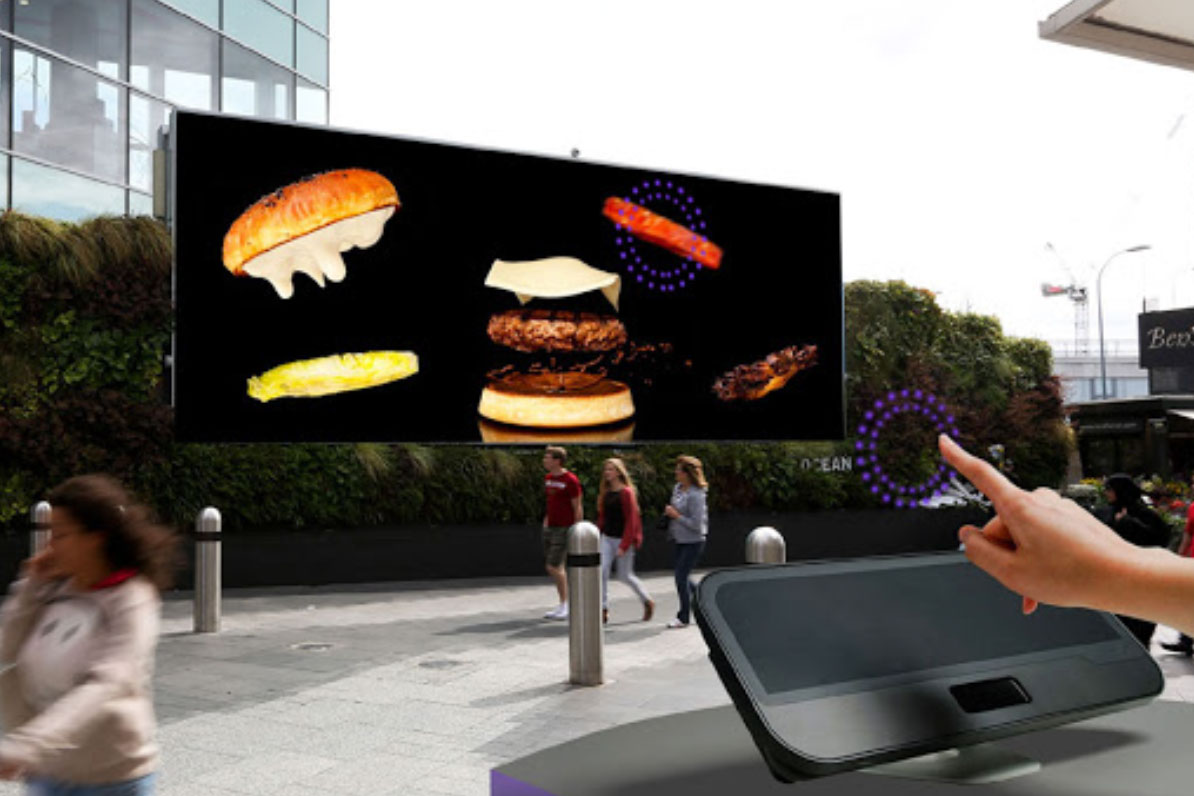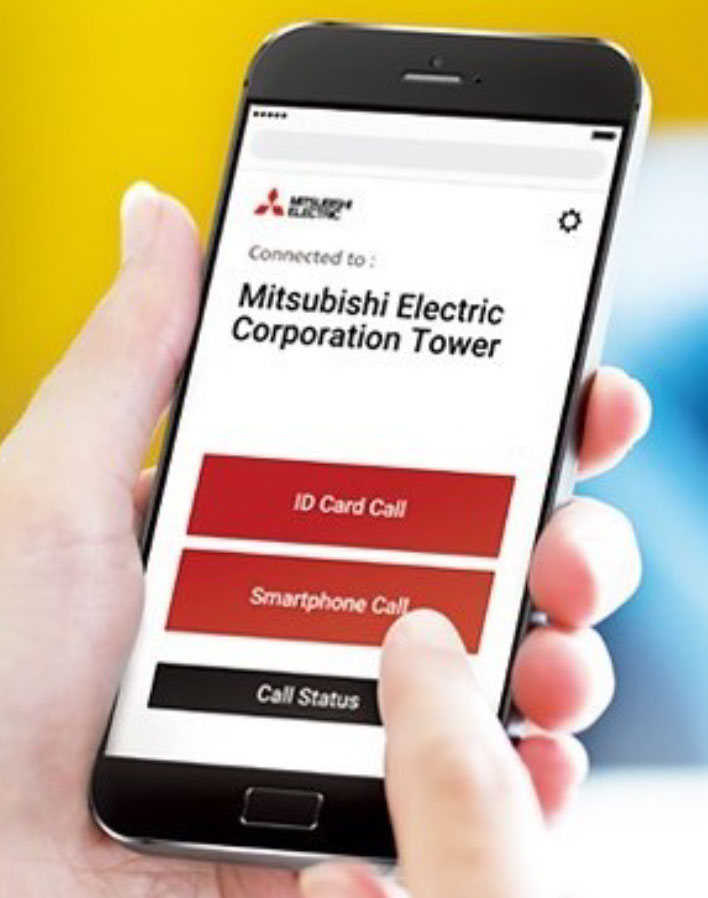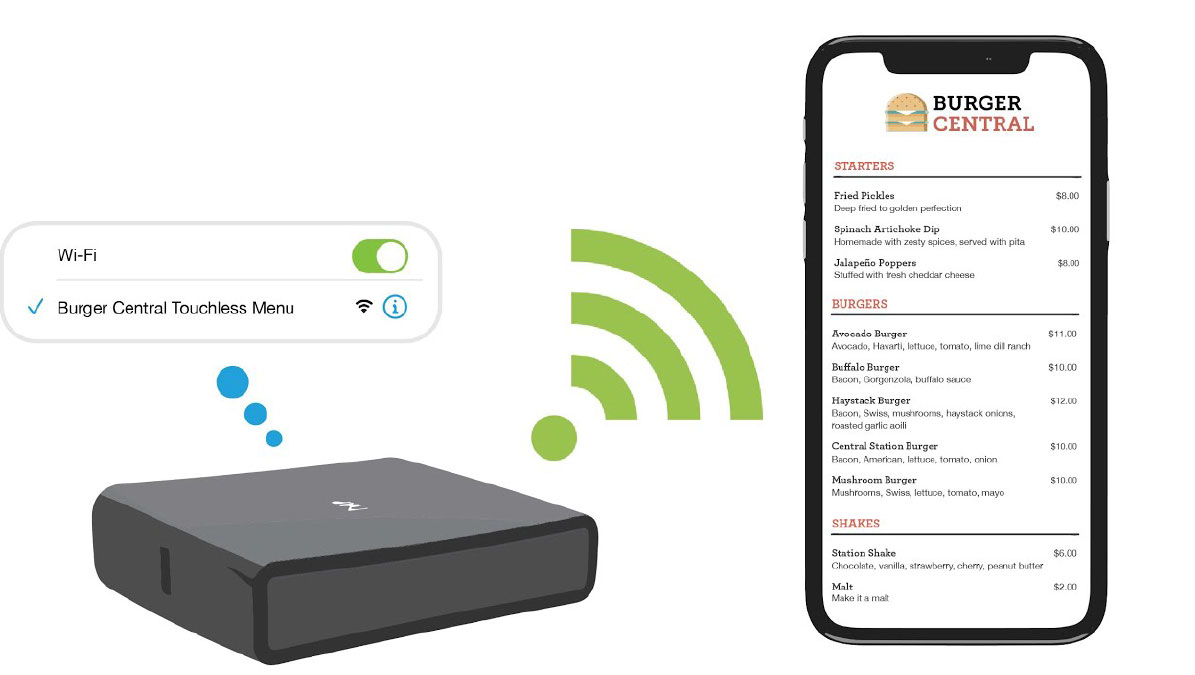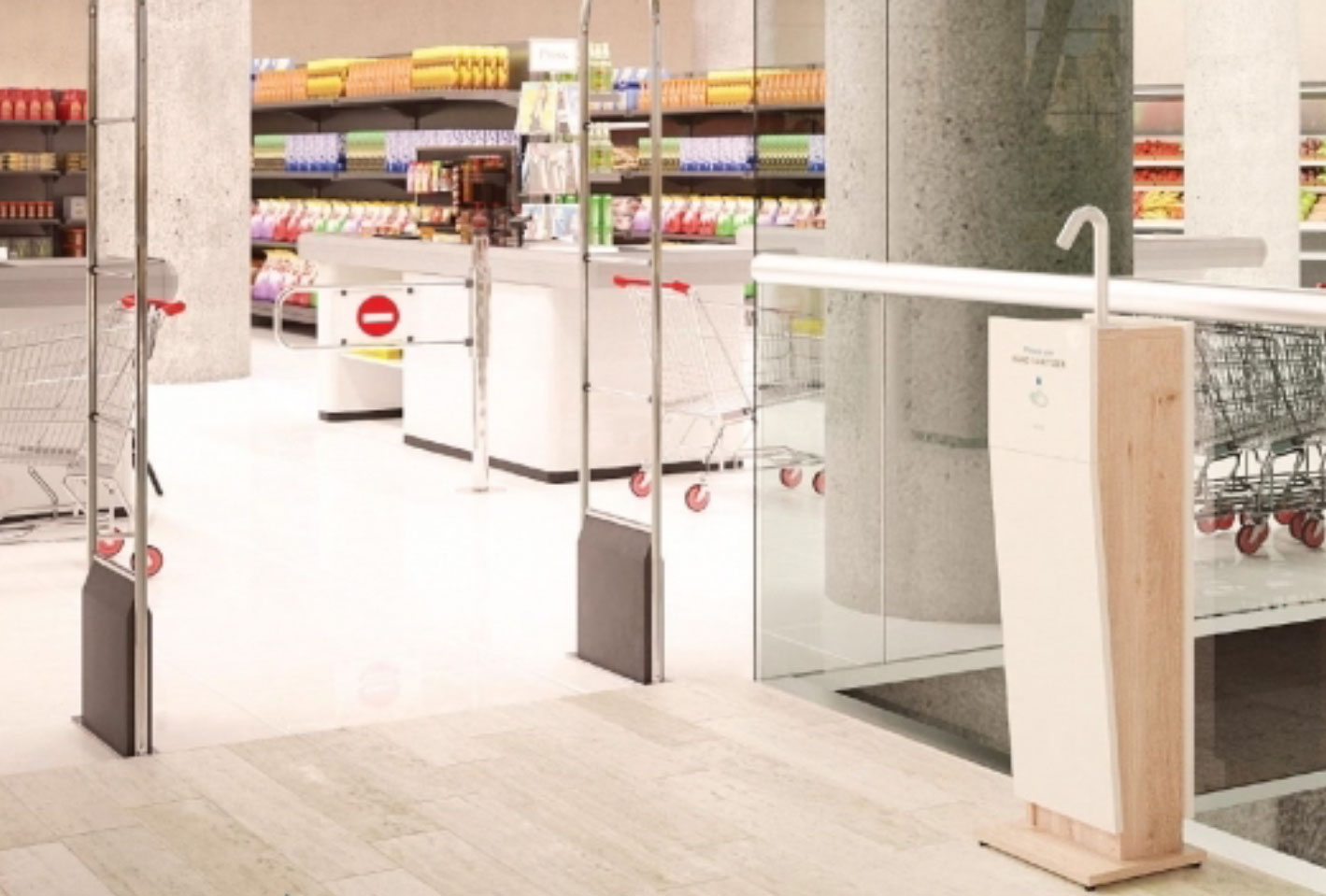
DIpil Das
Each month, our Consumer Tech Briefing series discusses recent developments in the world of technology. This month, we focus on the latest product launches involving touch-free tech that can help businesses to safely resume operations post Covid-19 lockdowns.
As the world prepares to reopen, customers are concerned about touching public technology interfaces that would heighten the risk of cross-contamination, including ATMs, elevator buttons, public screens and restaurant menus. A survey conducted by experience design-services provider Foolproof in April in the UK revealed that since the outbreak, 74% of respondents have either worn gloves to use a public touchpoint or wiped down a public touch interface. In addition, 80% of respondents stated that they will behave differently when interacting with touchable public technology due to the coronavirus situation—for example, 51% of respondents expect to always wash or sanitize their hands immediately after using public touchscreens.
A survey conducted by Ultraleap, a gesture-recognition technology company, in late April and early May found that of 538 respondents (271 from the UK and 267 from the US), only 12% (9% of the UK group and 14% of the US group) believe that public touchscreens are hygienic, and more than 82% overall (85% of the UK group and 79% of the US group) said that they believe touchless surfaces would be more hygienic and give them better protection. The survey also found that, in the future, consumers are almost twice as likely to interact with touch-free interfaces than the touchscreen technology they have used until now.
These figures suggest major implications for the businesses that are beginning to reopen. The hygiene-conscious customer will want to avoid physical contact with public devices, at least in the short term. Companies must begin to adapt to this new normal, which will likely require changes in future products and services.
Ocean Outdoor Announces the Launch of Touchless Advertising Screens that Eliminate Physical Contact
DOOH media firm Ocean Outdoor has announced plans to introduce interactive touchless advertising and product-ordering screens across key experiential spaces in the UK. In collaboration with Ultraleap, the company will deploy mid-air haptics technology to the DOOH format; displays and interfaces that were previously operated through physical touch will now be triggered and controlled by hand gestures. Ocean Outdoor reported that it would be rolling out the touchless screen technology across its premium retail and city center portfolio to help brands and retailers market their promotional campaigns.
According to Ultraleap, as well as controlling content via hand gestures, “the haptics provide immersive sensations on a participant’s palm, which are customised and synced to the interactive on-screen experience.” The technology therefore does not require wearables; it will use electric forcefields, “fizzy bubbles” and virtual buttons that can be felt on the user’s palm.
[caption id="attachment_111496" align="aligncenter" width="700"] Concept: Ocean’s screens use mid-air haptics technology to enable customers to select their burger toppings. A QR code is generated that is unique to their burger design, which customers then redeem in the relevant nearby outlet.
Concept: Ocean’s screens use mid-air haptics technology to enable customers to select their burger toppings. A QR code is generated that is unique to their burger design, which customers then redeem in the relevant nearby outlet.
Source: Ocean Outdoor [/caption] Mitsubishi Electric US Unveils Touch-Free Elevator Call App The Elevator & Escalator Division of Mitsubishi Electric US has introduced an elevator call system app for elevators equipped with the Mitsubishi Electric Sigma AI Destination Oriented Allocated System (DOAS). The application allows users who have passed a security check to summon an elevator remotely from anywhere in the building. The app displays the assigned elevator and its current status and alerts the user of the elevator’s arrival. The app eliminates the need for people to directly interact with elevator fixtures, providing a touch-free call experience. The app also enables users to set a default mode for specific needs, such as requesting elevators that are wheelchair accessible. The app includes a number of features that enhance both security and convenience: “ID Card Call” enables users to sync their security-issued ID cards to call an elevator, once they swipe for entry into the building; “Smartphone Call” allows users to call an elevator from any location in the building and set both the arrival and destination floors in advance; and “Call Status” sends real-time alerts to users’ smartphones notify them of the status of their assigned elevator. [caption id="attachment_111497" align="aligncenter" width="394"] Source: Mitsubishi Electric[/caption]
GoZone WiFi Launches “Touchless Menu” for Restaurant Dining
GoZone WiFi, a Florida-based Wi-Fi analytics company, launched its “Touchless Menu” solution to replace physical restaurant menus: The digital menu listings enable contactless ordering. The Touchless Menu consists of a drag-and-drop menu editor, pre-built menu templates and a router box. Restaurants can upload their current menu to the editor, and the router box plugs into the restaurant’s existing Internet router to enable guest Wi-Fi access. Customers can then view the digital menu by connecting to the dedicated Wi-Fi network via their smartphones, tablets or laptops.
GoZone WiFi claims that the Touchless Menu solution provides a safer alternative to physical menus—as well as being less cumbersome than sanitizing physical menus and less costly and more eco-friendly than using printed single-use disposable menus.
[caption id="attachment_111498" align="aligncenter" width="700"]
Source: Mitsubishi Electric[/caption]
GoZone WiFi Launches “Touchless Menu” for Restaurant Dining
GoZone WiFi, a Florida-based Wi-Fi analytics company, launched its “Touchless Menu” solution to replace physical restaurant menus: The digital menu listings enable contactless ordering. The Touchless Menu consists of a drag-and-drop menu editor, pre-built menu templates and a router box. Restaurants can upload their current menu to the editor, and the router box plugs into the restaurant’s existing Internet router to enable guest Wi-Fi access. Customers can then view the digital menu by connecting to the dedicated Wi-Fi network via their smartphones, tablets or laptops.
GoZone WiFi claims that the Touchless Menu solution provides a safer alternative to physical menus—as well as being less cumbersome than sanitizing physical menus and less costly and more eco-friendly than using printed single-use disposable menus.
[caption id="attachment_111498" align="aligncenter" width="700"] Source: GoZone WiFi/Facebook[/caption]
Stern Engineering Launches Touch-Free Hand-Sanitizer Stands for Commercial Environments
Stern Engineering, a manufacturer of kitchen and bath fixtures, has launched infrared-sensor-activated, touchless, electronic hand-sanitizer stands. The stands will be available in standalone or wall-mounted formats and are operated by either a battery or transformer. The stands can be installed at the entrances of high-traffic public areas that carry the greatest risk of the coronavirus spreading—such as airports, banks, cash/ticket machines, gas stations, shopping malls and supermarkets.
According to Stem Engineering, the stands can be used with any brand of non-proprietary hand-sanitizer gel of correct viscosity (up to 3,800 centipoises) and is compatible with Ethanol, Isopropyl Alcohol (up to 80%) and alcogel. The company claims that the refillable six-liter tank holds enough gel sanitizer for around 6,000 activations, making the stands cost-effective.
[caption id="attachment_111499" align="aligncenter" width="700"]
Source: GoZone WiFi/Facebook[/caption]
Stern Engineering Launches Touch-Free Hand-Sanitizer Stands for Commercial Environments
Stern Engineering, a manufacturer of kitchen and bath fixtures, has launched infrared-sensor-activated, touchless, electronic hand-sanitizer stands. The stands will be available in standalone or wall-mounted formats and are operated by either a battery or transformer. The stands can be installed at the entrances of high-traffic public areas that carry the greatest risk of the coronavirus spreading—such as airports, banks, cash/ticket machines, gas stations, shopping malls and supermarkets.
According to Stem Engineering, the stands can be used with any brand of non-proprietary hand-sanitizer gel of correct viscosity (up to 3,800 centipoises) and is compatible with Ethanol, Isopropyl Alcohol (up to 80%) and alcogel. The company claims that the refillable six-liter tank holds enough gel sanitizer for around 6,000 activations, making the stands cost-effective.
[caption id="attachment_111499" align="aligncenter" width="700"] Source: Stern Engineering[/caption]
Key Insights
In light of the current pandemic, consumers are now more averse to touching public technology interfaces, and there are strong indications that these attitudes will become more ingrained in the post-Covid environment. This means that many businesses—including retailers, banks and travel service operators—will have to overhaul their physical touchpoints for customer engagement, for which technology will play a crucial role. In the future, we expect to see businesses incorporating more contactless customer interactions that are rooted in technologies such as facial, voice and gesture recognition as well as haptics. In addition, we expect to see smartphones perform a broader set of functions to facilitate touch-free experiences.
Source: Stern Engineering[/caption]
Key Insights
In light of the current pandemic, consumers are now more averse to touching public technology interfaces, and there are strong indications that these attitudes will become more ingrained in the post-Covid environment. This means that many businesses—including retailers, banks and travel service operators—will have to overhaul their physical touchpoints for customer engagement, for which technology will play a crucial role. In the future, we expect to see businesses incorporating more contactless customer interactions that are rooted in technologies such as facial, voice and gesture recognition as well as haptics. In addition, we expect to see smartphones perform a broader set of functions to facilitate touch-free experiences.
 Concept: Ocean’s screens use mid-air haptics technology to enable customers to select their burger toppings. A QR code is generated that is unique to their burger design, which customers then redeem in the relevant nearby outlet.
Concept: Ocean’s screens use mid-air haptics technology to enable customers to select their burger toppings. A QR code is generated that is unique to their burger design, which customers then redeem in the relevant nearby outlet. Source: Ocean Outdoor [/caption] Mitsubishi Electric US Unveils Touch-Free Elevator Call App The Elevator & Escalator Division of Mitsubishi Electric US has introduced an elevator call system app for elevators equipped with the Mitsubishi Electric Sigma AI Destination Oriented Allocated System (DOAS). The application allows users who have passed a security check to summon an elevator remotely from anywhere in the building. The app displays the assigned elevator and its current status and alerts the user of the elevator’s arrival. The app eliminates the need for people to directly interact with elevator fixtures, providing a touch-free call experience. The app also enables users to set a default mode for specific needs, such as requesting elevators that are wheelchair accessible. The app includes a number of features that enhance both security and convenience: “ID Card Call” enables users to sync their security-issued ID cards to call an elevator, once they swipe for entry into the building; “Smartphone Call” allows users to call an elevator from any location in the building and set both the arrival and destination floors in advance; and “Call Status” sends real-time alerts to users’ smartphones notify them of the status of their assigned elevator. [caption id="attachment_111497" align="aligncenter" width="394"]
 Source: Mitsubishi Electric[/caption]
GoZone WiFi Launches “Touchless Menu” for Restaurant Dining
GoZone WiFi, a Florida-based Wi-Fi analytics company, launched its “Touchless Menu” solution to replace physical restaurant menus: The digital menu listings enable contactless ordering. The Touchless Menu consists of a drag-and-drop menu editor, pre-built menu templates and a router box. Restaurants can upload their current menu to the editor, and the router box plugs into the restaurant’s existing Internet router to enable guest Wi-Fi access. Customers can then view the digital menu by connecting to the dedicated Wi-Fi network via their smartphones, tablets or laptops.
GoZone WiFi claims that the Touchless Menu solution provides a safer alternative to physical menus—as well as being less cumbersome than sanitizing physical menus and less costly and more eco-friendly than using printed single-use disposable menus.
[caption id="attachment_111498" align="aligncenter" width="700"]
Source: Mitsubishi Electric[/caption]
GoZone WiFi Launches “Touchless Menu” for Restaurant Dining
GoZone WiFi, a Florida-based Wi-Fi analytics company, launched its “Touchless Menu” solution to replace physical restaurant menus: The digital menu listings enable contactless ordering. The Touchless Menu consists of a drag-and-drop menu editor, pre-built menu templates and a router box. Restaurants can upload their current menu to the editor, and the router box plugs into the restaurant’s existing Internet router to enable guest Wi-Fi access. Customers can then view the digital menu by connecting to the dedicated Wi-Fi network via their smartphones, tablets or laptops.
GoZone WiFi claims that the Touchless Menu solution provides a safer alternative to physical menus—as well as being less cumbersome than sanitizing physical menus and less costly and more eco-friendly than using printed single-use disposable menus.
[caption id="attachment_111498" align="aligncenter" width="700"] Source: GoZone WiFi/Facebook[/caption]
Stern Engineering Launches Touch-Free Hand-Sanitizer Stands for Commercial Environments
Stern Engineering, a manufacturer of kitchen and bath fixtures, has launched infrared-sensor-activated, touchless, electronic hand-sanitizer stands. The stands will be available in standalone or wall-mounted formats and are operated by either a battery or transformer. The stands can be installed at the entrances of high-traffic public areas that carry the greatest risk of the coronavirus spreading—such as airports, banks, cash/ticket machines, gas stations, shopping malls and supermarkets.
According to Stem Engineering, the stands can be used with any brand of non-proprietary hand-sanitizer gel of correct viscosity (up to 3,800 centipoises) and is compatible with Ethanol, Isopropyl Alcohol (up to 80%) and alcogel. The company claims that the refillable six-liter tank holds enough gel sanitizer for around 6,000 activations, making the stands cost-effective.
[caption id="attachment_111499" align="aligncenter" width="700"]
Source: GoZone WiFi/Facebook[/caption]
Stern Engineering Launches Touch-Free Hand-Sanitizer Stands for Commercial Environments
Stern Engineering, a manufacturer of kitchen and bath fixtures, has launched infrared-sensor-activated, touchless, electronic hand-sanitizer stands. The stands will be available in standalone or wall-mounted formats and are operated by either a battery or transformer. The stands can be installed at the entrances of high-traffic public areas that carry the greatest risk of the coronavirus spreading—such as airports, banks, cash/ticket machines, gas stations, shopping malls and supermarkets.
According to Stem Engineering, the stands can be used with any brand of non-proprietary hand-sanitizer gel of correct viscosity (up to 3,800 centipoises) and is compatible with Ethanol, Isopropyl Alcohol (up to 80%) and alcogel. The company claims that the refillable six-liter tank holds enough gel sanitizer for around 6,000 activations, making the stands cost-effective.
[caption id="attachment_111499" align="aligncenter" width="700"] Source: Stern Engineering[/caption]
Key Insights
In light of the current pandemic, consumers are now more averse to touching public technology interfaces, and there are strong indications that these attitudes will become more ingrained in the post-Covid environment. This means that many businesses—including retailers, banks and travel service operators—will have to overhaul their physical touchpoints for customer engagement, for which technology will play a crucial role. In the future, we expect to see businesses incorporating more contactless customer interactions that are rooted in technologies such as facial, voice and gesture recognition as well as haptics. In addition, we expect to see smartphones perform a broader set of functions to facilitate touch-free experiences.
Source: Stern Engineering[/caption]
Key Insights
In light of the current pandemic, consumers are now more averse to touching public technology interfaces, and there are strong indications that these attitudes will become more ingrained in the post-Covid environment. This means that many businesses—including retailers, banks and travel service operators—will have to overhaul their physical touchpoints for customer engagement, for which technology will play a crucial role. In the future, we expect to see businesses incorporating more contactless customer interactions that are rooted in technologies such as facial, voice and gesture recognition as well as haptics. In addition, we expect to see smartphones perform a broader set of functions to facilitate touch-free experiences.